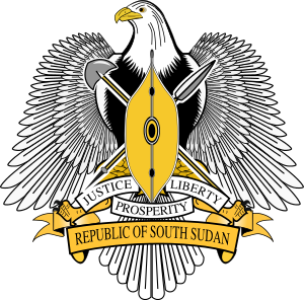S. Sudan accepts federalism but requires further discussion: minister
March 28, 2017 (JUBA) – South Sudan Minister of Federal Affairs, Richard K. Mulla, said the new nation will adopt federalism after the transitional period.
 Further discussion on the form of federalism will lead to an acceptable division of powers between national and local governments, Minister Mulla told a workshop on governance in Juba on Tuesday.
Further discussion on the form of federalism will lead to an acceptable division of powers between national and local governments, Minister Mulla told a workshop on governance in Juba on Tuesday.
“South Sudan has accepted federalism as a form of governance. What is left is the form of federalism because there are several of them,” said Mulla.
The minister was speaking at the closing workshop on the form of governance in the South Sudanese capital, Juba.
According to the August 2015 peace agreement, which created Ministry of Federal Affairs for the first time, the constitution writing process will adopt the form of governance preferred by all South Sudanese.
The SPLM In Opposition (IO) to which Minister Mulla belongs, demanded federalism as a system of government and opposed decentralised form where all powers and resources are controlled by the national government in the capital Juba.
The government of President Salva Kiir rejected adoption of federalism at the onset of Transitional Government of National Unity (TGONU) and referred to hold further discussions on the topic during the interim period.
Opponents of the federal rule said dividing the country into semi-autonomous states that control some resources and decide on local issues will lead to further disintegration. Proponents, however, urges that the country’s diversity means it is difficult to manage in the centre with the participation of all tribal or regional groups.
There has been no public discussion on the topic since the government-censored media coverage of the topic after the armed opposition, the SPLM-IO, vigorously campaigned for it.
Minister Mulla said the “tribal federation” will not be acceptable but declined to divulge further details.
Armed groups from the Equatoria region joined the SPLM-IO led by the former First Vice President Riek Machar and backed his proposal for a federal system in the country claiming it would be the better thing to stop the Dinka hegemony in their region.
(ST)
